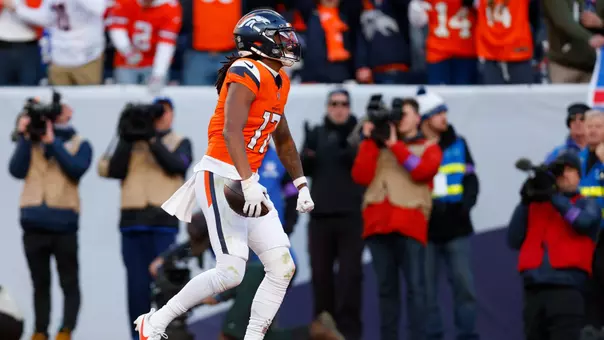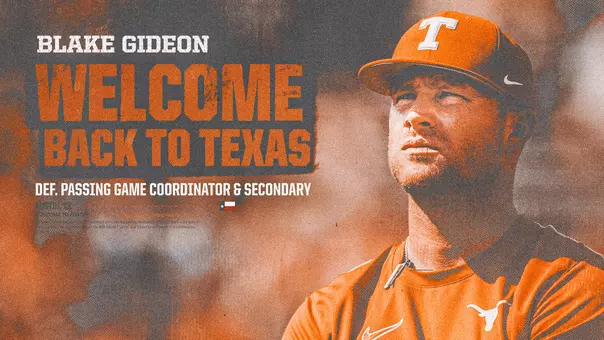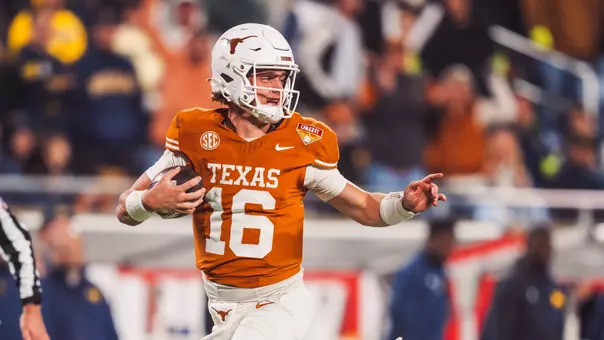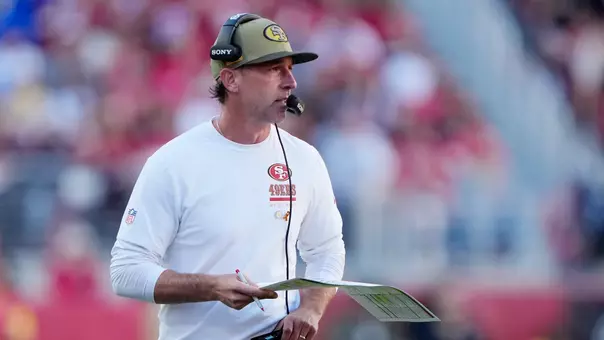The University of Texas at Austin Athletics
Bill Little commentary: Scott Appleton’s journey to redemption
08.14.2013 | Football, Bill Little Commentary
Like the lead character in Thomas Hardy’s 1874 novel “Far From the Madding Crowd,” Appleton fled the hustle and bustle of the limelight and fame into the depths of despair.
Scott Appleton was, by all accounts, the best that ever was.
Darrell Royal called him "the best defensive lineman I've seen since I have been in coaching. He simply makes tackles from sideline to sideline, and he's like blocking a wall on one play and smoke the next."
Royal's defensive guru, coach Mike Campbell, said "He's the only player I never remember being blocked."
In two seasons, as the Longhorns flirted with national championship dreams in 1961 and 1962, Appleton had become recognized as the most feared defender in all of college football. By 1963 he had achieved standards of mythical proportions. Or, perhaps better said, he had re-established them. During his high school career in Brady (defined by its Chamber of Commerce as the geographical center or "Heart" of Texas), Appleton became a legend.
In short, by 1963—at 6-3 and 235 pounds—he was the biggest, baddest football player on the planet. It was a time when most guys played on both offense and defense, and Appleton could do both as a tackle, but it was as the leader of the Texas defense that he would etch his name real close to Longhorn immortality as part of UT's first unanimous national championship selection.
In eight of the eleven games in the perfect season, the Longhorns allowed fewer than seven points to their opponents—including three shutouts. When the Longhorns opened the season in the old Sugar Bowl Stadium in New Orleans with a 21-0 victory over Tulane, Campbell said on a post-game radio call-in that Appleton was particularly brilliant.
"How do you know he had a good game without looking at the films?" challenged the call-taker.
Campbell answered without hesitation, "Because he's never had a bad one."
In an era of football where guys played both ways and four or five touchdowns would be an offensive explosion, the benchmark for the 1963 Longhorns would be the defense. In his book on football written by Royal after the 1961 season, he related a story where his friend, Frank Broyles, had shocked a group of sports writers by telling them that his first objective in coaching is to tie.
"What Frank was saying, however, is the basic precept of football: You never lose a ball game if your opponent doesn't score. Therefore, you first play to keep him from scoring. Then you play to score yourself," Royal wrote.
At the heart of that was Scott Appleton, a small town boy in a man's body. Compared to the giants who play the game today, Appleton was small in stature—a factor that would eventually prove his undoing at the next level. From his defensive tackle position, he had a rare combination of size, speed, strength and agility. And with all of that, he had the intangible of being a nice guy who was competitive enough to work himself into a severe case of angry by game time.
The best example of that came in the Oklahoma game, when the Sooners entered the contest as the No. 1 team in the country. Texas had beaten OU five straight times, but the No. 2 ranked Longhorns were underdogs heading into the annual showdown in Dallas.
Appleton was the perfect example of the quiet man who used other teams' distain to motivate him, and the ready foil in the OU game was star running back Joe Don Looney—who had actually started his career as a track athlete at Texas.
The Sooners had whipped top-ranked Southern Cal to move to the top of the polls, and Looney was on track for all-star honors. But in an interview the week before the game in assessing the Longhorns' defense, he was quoted as saying, "Appleton's tough…but he ain't met the Big Red yet."
Neither, however, had Looney met Appleton.
On the game's first play, the Texas defense dropped Looney for a five yard loss, and he finished the game with negative yardage. Appleton was named National Lineman of the Week after making a game high 18 tackles and recovering a fumble in the Longhorns' stunning 28-7 victory which vaulted them to No. 1.
After the game, Sooner coach Bud Wilkinson was asked about the game's "turning point.
"There was no turning point that I could see," he said. "Except the opening kickoff."
The week after the game, Looney's college career ended when Wilkinson suspended him for disciplinary reasons—which did not involve his pre-game comments.
Appleton's final appearance as a Longhorn would come seven games later in the same stadium, when he led a Longhorn defense which collared Navy's Heisman Trophy-winning quarterback Roger Staubach in a 28-6 Cotton Bowl Classic victory that provided an exclamation point to the perfect season.
A tri-captain along with Tommy Ford and David McWilliams, Appleton became the Longhorns' first Outland Trophy winner as the nation's top lineman. He was a consensus all-American and a two-time all-Southwest Conference selection. In a trip to truly rarified air for a lineman, he was fifth in the voting for the Heisman Trophy as the nation's top football player.
As the spring of 1964 arrived, Scott Appleton appeared to be on top of the football world. There were two leagues of professional football then—the AFL and the NFL. Scott was the No. 1 draft pick of both the Dallas Cowboys of the NFL and the Houston Oilers of the AFL. When the Cowboys traded his rights to Pittsburgh, however, Appleton elected to stay at home in Texas with the Oilers.
Sadly, that would be the highlight of his professional football career.
The downward spiral lasted five long seasons. Appleton, whose father had committed suicide after struggling with alcoholism, began battling the same affliction as he was asked to gain weight in the new league. Defensive linemen at that next level, even then, were taller and weighed more. With extra height and longer arms, they were more adept at pass rushing.
To gain weight, he turned to beer, often leaving the Oiler dressing room with a case under each arm. Then it was hard liquor. His old roommate, David McWilliams, remembers visiting Appleton when he drank a fifth of whiskey on each of three straight days. Beaten down by alcohol and some drugs, he lasted three years with the Oilers and two with San Diego.
Like the lead character in Thomas Hardy's 1874 novel "Far From the Madding Crowd," Appleton fled the hustle and bustle of the limelight and fame into the depths of despair. He picked up odd jobs as a short order cook at fast food restaurants.
And then one day, he found his way home. He had tried AA and other rehab groups, but his fame always followed him and he couldn't ever be "anonymous." Finally, he wound up in San Antonio at the Fourth Street Inn, a project of the First Baptist Church and Rev. Jimmy Allen. They would feed the homeless, but before they ate, they would read the Bible.
In that space, he found redemption, and the solitude—just as Thomas Hardy's character did so long ago. Appleton quit drinking, cold turkey, and set about becoming an ordained minister. He worked first at the Fourth Street Inn, and then started his own ministry working with young people through organizations like the Fellowship of Christian Athletes. Speaking at places all over the country, he openly told his story of alcoholism and recovery.
The man who had thrilled fans in the arena of the game was now changing lives in the arena of life. He had the heart of a lion in his testimonies, but sadly, his own heart was failing. He was battling serious heart disease. At first, he rejected suggestions of seeking a heart transplant, saying that he was"right with God" as he was. In time, he relented, and was placed on the list for a donor heart. He was wearing a heart monitor that night in 1992, when he died. He was only 50 years old.
In his book, "Where have you gone…Texas Longhorns," author Whitt Canning relates an interview with Scott's sister, Tresh Steffens.
"He left a message on my phone that night," she told Canning. "He had spoken to two groups earlier in the day and was going to stay home and watch TV that night. That's where he died, sitting in front of the TV. I tried to call him back when I got in, but couldn't get an answer. I just thank God he didn't suffer.
"It's almost every day now that I run into someone who has a child that he touched, and when I went through his things, I found boxes of letters—thousands of them—from young people he had helped.
"Once in his life he had chased dreams of money and success, but he always seemed to want more. But the last ten years of his life, I don't think I ever saw him that happy and contented, and he didn't drink for the last twelve to fifteen years."
When Mack Brown came to Texas in 1998, he realized that UT's trophy room was non-existent, and he further learned that the Outland Award, presented by the Football Writers Association of America, had only been a paper certificate prior to the 1990s. By then, a bronze cast of a lineman had been created. Brown ordered trophies for the trophy room for the three Longhorn honorees, and presented individual ones to Tommy Nobis and Brad Shearer at a home game.
He also gave one to Steffens and the family of Scott Appleton. The folks in the stadium cheered him, one more time. Six years after he had died, Scott's circle of life—far from the madding crowd which now celebrated him, had completed its journey.
In his book, Canning writes that Steffens said that after Scott's death, she was talking to a friend who wondered why God did not perform a miracle to save Appleton.
"He did," was all she said.





